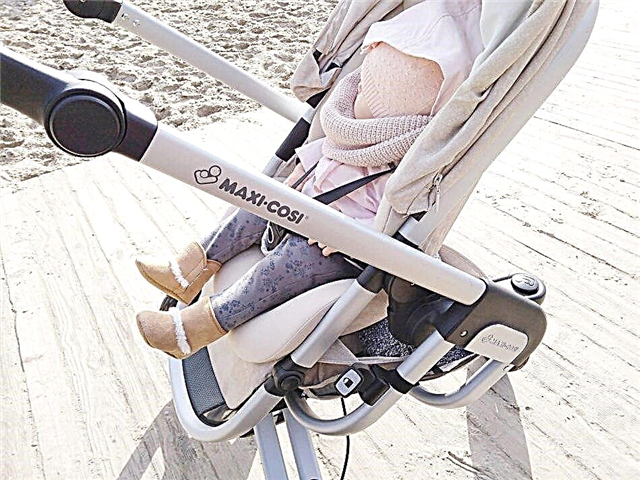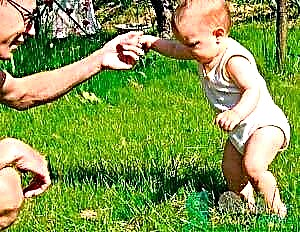
As early as 20 years ago, women were considered to be fertile after 28 years. Now, when the fair sex is trying to do everything, they often postpone motherhood for later. First, education, career and material resources are of paramount importance. And more and more often, the time for the first birth is only at the age of 30-35.
Closer to forty, when the first-born is growing up (or has already grown completely), many women wonder whether to become a mother again. More and more often they look back at women with strollers on the street and catch themselves thinking that they would gladly visit a children's store.

But many are frightened by age, and there is simply a huge assortment of "scary" stories about aging mothers and their children, which the Internet is stuffed with. Let's try to understand this issue in more detail.
Pregnancy after 40 years
To begin with, it is already quite difficult for a woman to become pregnant after 40 years. The level of fertility is rapidly declining, and the ovaries are producing fewer and fewer “healthy” eggs ready for fertilization. The number of anovulatory cycles increases, i.e. cycles in which ovulation never occurs.
However, if pregnancy has occurred, then a woman over 40 should know that the next 9 months will differ significantly from the first pregnancy.
Despite the fact that the society has become more favorable to look at "age" mothers, in traditional medicine, a certain bias remains. And a woman will have to face her from the first days of pregnancy. Doctors will more closely monitor the development of the child and the condition of the expectant mother, they will have to attend the consultation more often than 20-year-old girls in the position do, many pregnant women at this age spend almost the entire period in the hospital in conservation.
Obstetricians and gynecologists can be understood: by the age of 40, a woman has already accumulated a sufficient burden of chronic diseases, and the process of bearing a child, associated with violent hormonal and physiological changes, can undermine her health and threaten the baby's condition.

The expectant mother, who is already over 40, will undergo screening tests without fail. There will be three of them. At 11-13 weeks of pregnancy, you will need to donate blood and undergo ultrasound diagnostics of the fetus. By a combination of factors, the risks of having a child with genetic pathologies will be calculated. During the screening, the likelihood of a baby with Down syndrome, Edwards, Cornelia de Lange, Patau, and neural tube defects is established.
As you know, the older the mother, the more likely a baby with Down syndrome is born. For example, in a 25-year-old woman, this risk is 1 in 2000. At 30 years old - 1: 1000, at 40 years old - 1: 150, and by 45 years old 1:30, that is, out of 30 births, some will end with the birth of a sick baby. The rest of the genetic diseases, the risk of which is revealed by screening studies, are quite rare on their own.
A second screening for a woman will be scheduled between 20 and 24 weeks pregnancy. It will also include a blood test and an ultrasound scan. The third screening of pregnant women is carried out at a period of 30-34 weeks.

Pregnant women after 40, as a rule, all without exception, are referred to a geneticist consultation. And if the results of the screening cause him concern, the woman may be offered to undergo an examination by invasive methods. They are more informative, for example, amniocentesis (amniotic fluid intake for genetic analysis) gives a result with an accuracy of 99%.
What should you know in this situation? Screening, like invasive diagnostics, is voluntary. Nobody has the right to force a woman to pass them. Some "age" mothers deliberately refuse such a diagnosis, believing that the child's own calmness and calmness is more important than the test result obtained as a result of nervous expectations and doubts.

The so-called late pregnancy will have its pros and cons. Let's take a closer look at them.
Pros
- Parents in their forties tend to be more conscious about planning a child. They already know what parenting is, they have a sufficient material and spiritual base, as well as rich life experience in order to raise a new person.
- It is believed that the body of a woman over 40 rejuvenates after childbirth. You can treat this as you like, but doctors do not deny it. The hormonal "shake-up" that the expectant mother will receive within 9 months really has a beneficial effect on the condition of the skin, hair, mobilizes internal organs, the woman "blooms". She has a reduced risk of stroke, menopause comes later, and it goes away less painfully.
- 40-year-old mothers are more patient, calm, balanced and empathetic towards their children. They get through the psychological postpartum crisis more easily.

Minuses
- Carrying a baby at 40 is much more difficult than at 25. The load on all organs is so great that against the background of pregnancy in a woman, not only existing diseases can aggravate, but new ones can also appear.
- Pregnant mothers are more likely to have problems with lactation. There is not enough milk or no milk at all.
- Quite often, a pregnancy over the age of 40 ends with a caesarean section. Doctors do not want to risk the health of the baby and mother during a natural birth.
- Pregnancy over the age of 40 significantly increases the risk of miscarriage. Compared to the baseline values, it increases by about 50%. And the risk of premature birth increases by 40%.

Myths and reality
- During pregnancy after 40 years, the probability of giving birth to twins increases significantly. Moreover, the twins are likely to be fraternal. It's true. But the opinion that the children of 40-year-old mothers are more capable, talented and almost brilliant is a common myth. The age of the woman in labor does not in any way affect the intellectual abilities of the baby.
- Women who give birth after 40 years live longer. Sociologists around the world claim that their research confirms this. But most likely, it's not about childbirth. It's just that women who risk getting pregnant and giving birth to a baby at a mature age initially have better health, which can not affect their life expectancy.
- Children are ashamed of age parents. Pure fiction. These are parents who are ashamed of themselves. And children love mom and dad as they are. Moreover, they have nothing to be ashamed of - parents in adulthood, as a rule, are well provided for financially, have a stable job, for them the housing issue is not acute.

Psychologist's advice
If a woman decides to get pregnant and give birth to a second child after 40 years, it will be difficult for her without psychological support. The fact is that late pregnancy is associated with a lot of fears. But age is not a sentence, and in fact it is only the positive attitude of the expectant mother that matters.
How to deal with your fears?
- Focus on your feelings. Trust yourself. If you are feeling well, do not introduce unnecessary fuss, and unless absolutely necessary, do not run around the doctors' offices. Enjoy your pregnancy, and then the fears will burst on their own like soap bubbles.
- Make the most of your time. Parental leave is a good time for self-improvement. Do not dwell on your fears, listen to your favorite music, finally read all those books that you put off for later, watch movies. Make it a rule to learn something new every day. This is useful for both mom and baby.
- Trust. Trust everyone who is with you - your husband, your doctor. They understand that pregnancy is a serious challenge for you, and they are ready to help. Open up in response.
- Do not hesitate to tell your family about your experiences and feelings. Share with your spouse, with the older child, if his age allows you to understand you. Let all members of your family expect the birth of your baby with you. Feeling like you're on a team can help you move mountains and reduce your anxiety levels.

- Do not neglect advice to walk more often, take a warm shower in the evenings, learn to relax, master breathing exercises.
- Distance yourself from anyone who tries to sow even a grain of doubt in you or criticizes your decision to become a mom. Whether or not to give birth at 40 is up to you. No one has the right to impose their opinion on you. Don't let anyone disturb your inner state.
- Get like-minded people. There are communities on the Internet where mature moms like you will understand, support and not condemn.
The birth of a child at any age is an extraordinary event. When weighing all the pros and cons, consider the most important factor - love. If you feel that she lives in you, and you are ready to give her in unlimited quantities to loved ones, be sure to give birth to a baby, even if you are under 50.
The joy and tenderness that you will experience, watching how your baby grows and develops, more than compensates for all the difficulties that are attributed to the period of late pregnancy.

In the next video, a gynecologist-endocrinologist gives advice on how to ease pregnancy for women who want to give birth at 40.
About what a mother will have to face at 40, see the video of clinical psychologist Veronica Stepanova.



